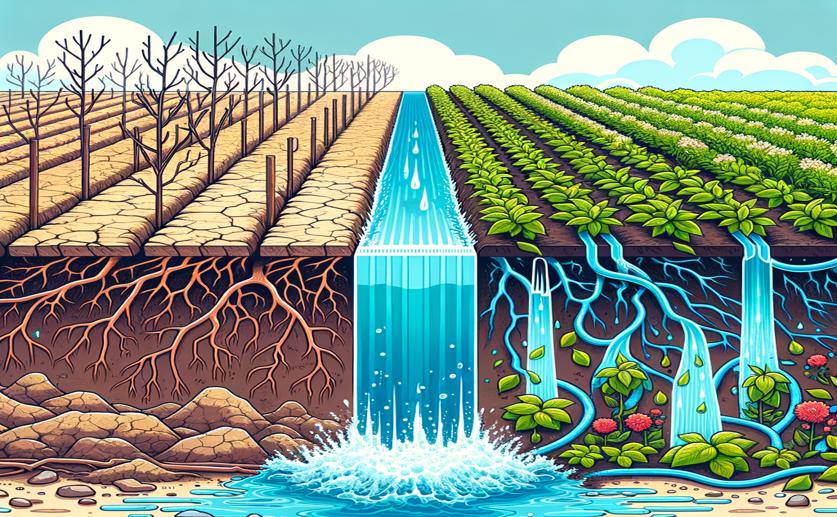
Impact of Reclaimed Water Irrigation on Soil Health and Plant Growth
Jenn Hoskins
2nd August, 2024

Image Source: Natural Science News, 2024
Key Findings
- The study by the International Hellenic University and Hellenic Agricultural Organization Dimitra used reclaimed water from domestic wastewater to irrigate Maize and Lavender
- Plant biomass significantly increased when irrigated with reclaimed water compared to freshwater
- Soil microbial diversity remained stable with reclaimed water, but specific microorganisms involved in nutrient cycling were selectively influenced
- The study suggests reclaimed water can enhance soil fertility and support crop growth without significantly altering overall microbial diversity
AgricultureEnvironmentPlant Science
References
Main Study
1) Short-term effect of reclaimed water irrigation on soil health, plant growth and the composition of soil microbial communities.
Published 30th July, 2024
https://doi.org/10.1016/j.scitotenv.2024.175107
Related Studies
2) Diversity, Co-occurrence and Implications of Fungal Communities in Wastewater Treatment Plants.
3) The structure of microbial communities of activated sludge of large-scale wastewater treatment plants in the city of Moscow.
4) Wastewater reuse in irrigation: a microbiological perspective on implications in soil fertility and human and environmental health.



 24th July, 2024 | Jenn Hoskins
24th July, 2024 | Jenn Hoskins